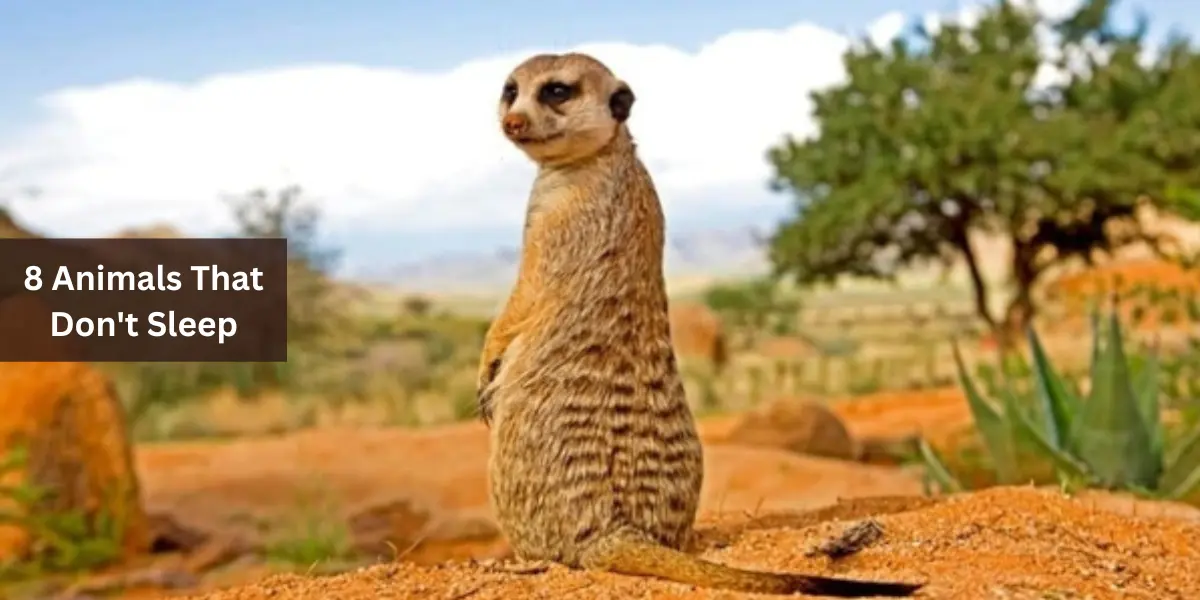Have you ever questioned if all creatures need a good night’s relaxation like we do? Well, buckle up, because we’re about to dive into the captivating global of animals that defy our commonplace perceptions of sleep. Yes, you read that right! There are animals accessible that don’t hit the snooze button – ever. Let’s explore those super insomniacs of the animal nation.
The Sleepless Ones: An Introduction
Sleep, for many of us, is a non-negotiable a part of our every day ordinary. But in the animal country, sleep is a luxury that a few can have enough money to bypass. These specific creatures have tailored to their environments in ways that make sleep pointless, or they have developed to rest in very unconventional manners. Intrigued? Let’s meet them.
1. The Enigmatic Bullfrog (Rana catesbeiana)
A Life Without Zzz’s
First on our list is the bullfrog. These amphibians are believed to head months, even years, without snoozing. How do they manage? Bullfrogs remain alert to their environment, keeping a kingdom of readiness that permits them to survive predators and catch their prey, all without the want to shut their eyes for a traditional sleep.
2. The Ever-Vigilant Alpine Swift (Tachymarptis melba)
Sky-High Slumber
Alpine swifts take power naps to a whole new level. These birds can live airborne for months, and studies advocate they might be catching microsleeps whilst gliding thru the skies. It’s a chicken, it is a aircraft, it’s… In no way slumbering?
3. Ocean’s Wanderers: The Dolphin and the Whale
Unconventional Sleepers
Dolphins and a few whale species have a unique way of resting one hemisphere of their mind at the same time as the alternative remains conscious. This lets in them to surface for air and stay vigilant towards threats. It’s no longer that they don’t sleep; they simply do not sleep like we do.
4. The Industrious Honeybee (Apis mellifera)
Buzzing Without Breaks
Honeybees work tirelessly, and their sleep patterns are nothing quick of weird. They take quick naps but are constantly geared up to shield their hive or forage for food. Their work ethic is enviable, with “naps” which might be more like blink-and-you-omit-it breaks.
5. The Mystical Giraffe (Giraffa camelopardalis)
Short and Sweet
Giraffes might win the award for the animal kingdom’s shortest sleepers. They relaxation for mere mins at a time, totaling only some hours every week. Standing tall and dozing little, giraffes are a marvel of nature’s layout.
6. The Resilient Elephant (Loxodonta africana)
Gentle Giants with Minimal Rest
Elephants are some other wonder. These massive mammals sleep for only to four hours a day, regularly status up. Their massive size and social shape may also provide an explanation for their need to remain alert.
7. The Unstoppable Great White Shark (Carcharodon carcharias)
Moving to Breathe
Great white sharks need to hold transferring to ensure water flows over their gills for oxygen. While they could input a restful nation, preventing isn’t an alternative. It’s the last example of “sleeping with one eye open.”
8. The Hardworking Ant (Family Formicidae)
The Colony That Never Sleeps
Lastly, we’ve ants. These tiny however amazing bugs are always at the circulate. While man or woman ants take brief breaks, the colony itself is a 24/7 operation. It’s teamwork on a whole other degree.
Conclusion: Nature’s Night Owls
These brilliant animals venture our information of sleep and survival. From the skies to the depths of the ocean, nature’s insomniacs demonstrate the range and flexibility of existence on our planet. They remind us that within the wild, staying awake can be just as critical as locating time to rest.
Frequently Asked Questions (FAQs)
1. Why don’t those animals need to sleep like human beings do?
Each animal has tailored to its environment in unique ways that minimize the need for traditional sleep. These variations help them live to tell the tale by means of keeping off predators, searching for food, or satisfying social roles inside their agencies.
2. Can these animals be afflicted by sleep deprivation?
Since these animals have developed to function without sleep as we realize it, they do now not revel in sleep deprivation within the identical manner human beings would possibly. Their our bodies and brains are adapted to their precise existence.
3. Are there any health effects for these animals no longer snoozing?
For the animals listed, their particular sleep patterns or lack thereof are not destructive however alternatively beneficial for their survival. It’s a super example of nature’s adaptability.
4. Do any other animals have uncommon sleep behavior?
Yes, many animals show off unique sleep patterns, such as birds which can sleep while flying or animals that hibernate for months. The animal country is full of surprises in relation to sleep!
5. Can reading those animals help human beings with sleep problems?
Absolutely! Research into the sleep patterns of those animals can offer insights into human sleep disorders and capability treatments. Nature frequently holds the key to understanding complicated biological strategies, which include our own need for sleep.
